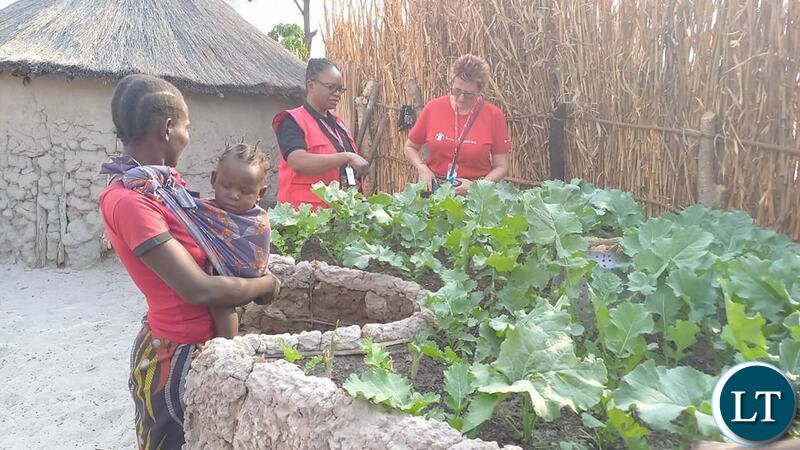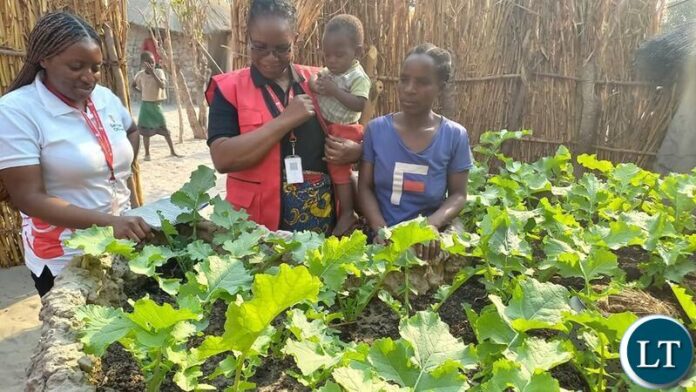In a significant stride towards promoting good nutritional practices and combating stunted growth among children, the Scaling Up Nutrition (SUN II) project’s second phase is making an impact in Shangombo District through the innovative use of keyhole gardens. Under the umbrella of the First 1000 Most Critical Days (1st 1000 MCDP II) program, this initiative is directed at children below the age of two.
Joan Musonda, the Country Director of Save the Children International Zambia, recently visited Shangombo District to assess the progress of the SUN II project and expressed her delight at the implementation of keyhole gardens by women in the area. She extended her commendation to the dedicated nutrition group supervisors who work closely with the community, particularly mothers, to raise awareness about good nutrition and foster its practice within households.

Ms. Musonda’s visit included inspections of various keyhole gardens that are being established in collaboration with the Ministry of Agriculture. Among the communities she visited was Make, where women have successfully cultivated a variety of vegetables using keyhole gardens, supplementing their household diets despite the challenging terrain.
Speaking about her visit, Ms. Musonda expressed her satisfaction, saying, “I was very happy to see the keyhole gardens and how pregnant mothers have been implementing the gardens. This is encouraging because I know this is a very difficult terrain with less water but a lot of sand.”
She emphasized the importance of employing diverse strategies to help communities in Shangombo, which is prone to drought, prepare for the rainy season. These strategies aim to maximize land use and optimize food production for families with limited water resources.
In light of these efforts, Ms. Musonda urged both Save the Children and government line Ministries involved in the SUN II project to collaborate closely to assist the most vulnerable members of the community.
During her visit, Ms. Musonda also toured the Department of Fisheries, where a hatchery has been constructed under the SUN II project’s second phase. She revealed that the fisheries hatchery would serve as a fingerling development center, facilitating the distribution of fingerlings to fish farmers across the district.

Highlighting the collaborative nature of the initiative, the Country Director disclosed that Save the Children is working hand in hand with the government to implement SUN II interventions aimed at enhancing nutrition and promoting good nutritional practices on the ground.
Norman Chilambwe, Acting Senior Agriculture Officer (SAO), shared insights into the nutritional interventions taking place in all 12 wards of Shangombo District. He emphasized that the primary goal is to secure the first 1000 most critical days for children below the age of two by providing easily accessible and nutritious vegetables, thereby reducing stunted growth.
Mr. Chilambwe also noted that the presence of keyhole gardens in homes simplifies food production, as these gardens can effectively store water, making it more convenient for families to grow nutritious food right at their doorsteps.



We blessed with arable land everywhere, but we luck knowledge and end up farming in a “keyhole”. Give those women and men pieces of land near rivers /streams and dams. They should do proper farming. We will have so much food that our schools will be able to feed our children in schools.
Comments are closed.